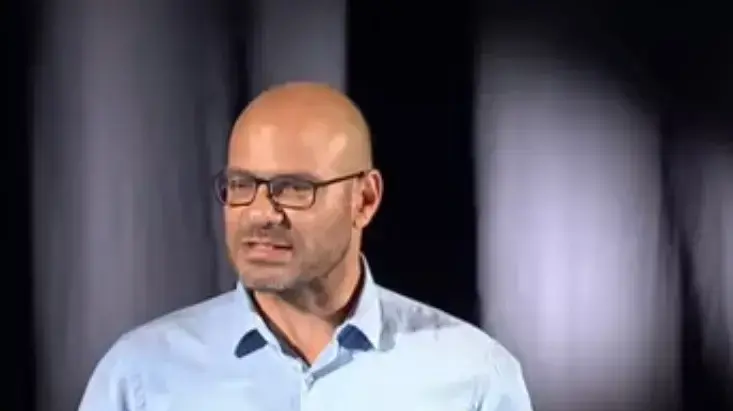culture
TV
direct watch
The series of articles on Israeli Arabs is a great achievement for his father-in-law and a sign of respect for the news 12
In his series of articles in News 12, Hemo focuses mainly on shattering prejudices.
It makes one realize calmly, without shouting, that perhaps reality looks a little different from how it is presented.
His father-in-law conducts this conversation fairly, aware of the pains of the parties.
In a sense he went against the conventions of television.
He succeeded hugely
Tags
Ohad Hemo
Nadav Menuhin
Wednesday, 20 October 2021, 09:06 Updated: 09:23
Share on Facebook
Share on WhatsApp
Share on general
Share on general
Share on Twitter
Share on Email
0 comments
Ventilates things leisurely.
Hemo (Photo: Screenshot, News 12)
A few months ago, in a conversation with Dana Weiss, News reporter 12 Ohad Hemo expressed regret that Jewish Israelis do not know what is really going on with their neighbors.
He knows what he's talking about, especially as a news man.
As a leading reporter, his father-in-law knows that it is quite rare to see any minority in Israel on the news broadcasts that are not in a negative or opposite context.
He knows how much the intense news coverage encourages conflictual framing, which dissolves human stories into a struggle between angry and never-ending sectors.
So he embarked on an extraordinary series of articles, focusing on Arab citizens (and especially from the northern region), in an effort to demonstrate what life in Israel looks like through their eyes. From a homemaker at a school in poor Jisr a-Zarqa, through a young couple from Tira who are getting married, to a stand-up comedian from Haifa. He talks to them about poverty and nationalism, crime and hope, empathy and consumerism. Lifetime. These long foreign articles, five in number, are interrupted by conversations in the auditorium in Holon in front of an audience of Israelis, who have repeatedly demonstrated to them the gap between the stereotype and reality when it comes to the strange statistics of life here.
The first important thing in his series of articles is the ability to ventilate things leisurely, as they are, throughout long articles.
The huge economic disparities and frustration from racism, the memory of the Nakba and the treatment of the country's symbols are all very charged issues.
In the theater of the quarrels and shouts of the commercial channels, also known as the studio, this can not happen.
The collective attention space is so limited here anyway, and the current television culture requires debate for the sake of debate.
More on Walla!
"The commander of the al-Aqsa Brigades threatened to make me shawarma"
To the full article
A respectable achievement.
Aliya (Photo: Screenshot, News 12)
Thus, as part of the long articles, his father-in-law can have a conversation - without speaking to the interviewees - about these things as well. The result is astonishing: Arab and Jewish citizens talk about the Nakba and the Palestinian narrative or about the complexity in front of the symbols of the state in the heart of prime time - and the sky has not fallen.
Not everything has matured in the collection of stories chosen by his father-in-law. Not everyone contributes to the discussion equally, some reveal the obvious, and this is not exactly a crash course for getting to know the Arab citizens of Israel - but a group of conversations around core issues. In any case, it seems that the scene of the equally interesting occurrence, beyond the articles themselves, is the hall where his father-in-law talks to the group of Israelis who came to him - his target audience.
Hemo not only provides data, but focuses mainly on shattering prejudices.
This completes the first move: to realize calmly, without shouting, that perhaps reality looks a little different from how it is presented.
His father-in-law conducts this conversation fairly, aware of the pain of the two groups he is talking to.
If there is potential for healing, it is possible to conduct the discussion in this way.
It's apparently not really television: long foreign articles and discussions in an auditorium.
But that's exactly the point: the medium is broken, and its walls have to be broken to deal with what is difficult and painful.
Even if it can provide information in a more accessible way or be more focused, Hemo's series of articles manages to interest because it goes against the conventions of current affairs television in today's Israel, and perhaps this cracking will also lead to other necessary conversations we must conduct.
It is a respectable achievement for his bread, but also a sign of respect for the news company behind it, for daring to go against its instincts.
Share on Facebook
Share on WhatsApp
Share on general
Share on general
Share on Twitter
Share on Email
0 comments

